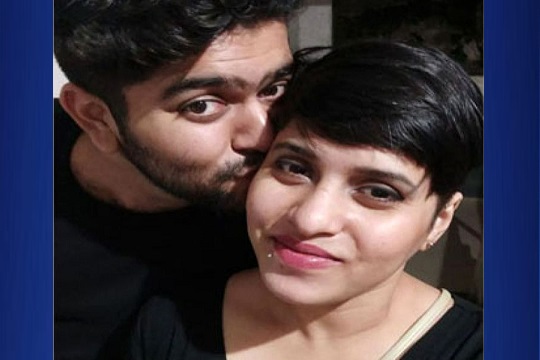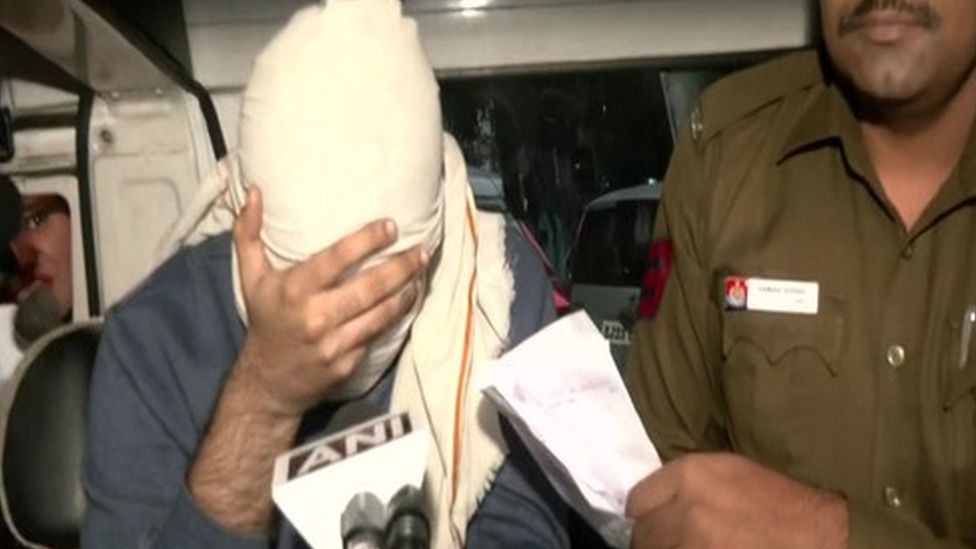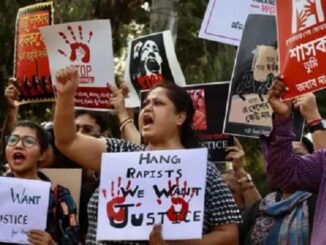
For the past few days, India has been gripped by what’s being described as a “murder most foul”.
Police in the capital, Delhi, have arrested a young man – Aftab Poonawala – on allegations of murdering his live-in partner of three years.
They allege that Mr Poonawala murdered 27-year-old Shraddha Walkar in May, chopped up her body into dozens of pieces, stored them in his home fridge and, over the past few months, went around disposing them off – a piece at a time – in different parts of the city.
Mr Poonawala is in custody and has not yet made any public statement, but on Tuesday, he told a court that “the information being spread against me is not correct” and that he was “fully cooperating with the police investigation”.
The death came to light only last week after Ms Walkar was reported missing by her father.
Since then, lurid details of the alleged murder have made daily headlines in India, with nuggets of unverified information being fed by unnamed policemen to local journalists.
The crime has been dubbed “the fridge murder” and the huge interest in the case has seen news websites running live pages on the investigation that are being updated every few minutes.
And anger has spilled over onto the streets – protesters have burnt Mr Poonawala’s effigies, demanding strict punishment for him.
Lawyers, activists and former police officials have expressed concern at the intense media coverage.
Vikram Singh, who retired as director general of police in the state of Uttar Pradesh, called it “extremely irresponsible”.
“A ball-by-ball commentary is detrimental to the cause of the investigation and disrespects the deceased,” he told the BBC.
The breathless coverage has also made it hard to separate the grain from the chaff – reports are mired in inconsistencies with little clarity on the facts of the case, including on how the couple met.
The relationship
Though Ms Walkar and Mr Poonawala lived in the same area in Mumbai city, police say they met on Bumble, a dating app.
But in the missing complaint to the Mumbai police in early October, her father says they met in 2018 at a call centre where they both worked.
Ms Walkar’s relations with her family were strained as they disapproved of her relationship with Mr Poonawala.
In his police complaint, her father said he had tried to dissuade her from moving in with Mr Poonawala since “we are Hindus and Aftab is Muslim and we don’t marry outside of our caste or religion”.
But the couple started living together in 2019 and moved to Delhi earlier this year and rented an apartment in Chhatarpur Pahadi area.

The couple’s friends and the police say the two quarrelled frequently and accuse Mr Poonawala of abusing her.
Senior police official Ankit Chauhan told ANI that Shraddha started putting pressure on Mr Poonawala to marry her and that “on 18 May, he lost his temper and strangled her”.
Ms Walkar’s father approached Mumbai police after being alerted by her friends that they had not heard from her for a few months and that her phone had been switched off.
On Wednesday, a handwritten note surfaced that Delhi police said was written by Ms Walkar in 2020 in which she had complained to the Mumbai police that he had beaten her up and “was threatening to kill her and cut her up into pieces” – exactly what police allege happened two years later.
Following criticism, Mumbai police responded that the case had been investigated, but “it was closed after she gave a written statement that it had been resolved and there was no dispute”.
What we know so far?
On Tuesday, when Mr Poonawala was asked by a court if he knew what he had done, he replied that “whatever happened took place in the heat of the moment and was not deliberate”.
His statement was interpreted by some as a confession, but his lawyer Abinash Kumar rejected that Mr Poonawala had confessed to murder and said that he was “fully cooperating with the investigation”.
Soon after his arrest, police had said that Mr Poonawala had confessed to his crime and given them some leads to find evidence.
Thereafter, they searched his apartment and took him to a nearby forest where – they said – “he had disposed of body parts”.
Police say they have recovered some bones and body parts which have been sent for forensic analysis and will be matched against the DNA samples of her father to find out if they are indeed Ms Walkar’s.
Armed with metal detectors, police have also been combing bushes in Gurgaon, a Delhi suburb, for knives that were allegedly used to hack the body and after divers fished out some bones from a pond in Delhi’s Maidan Garhi area, it was emptied to find more evidence.
On Thursday, the accused underwent a polygraph and is later expected to be put through a narco-analysis test – in which a drug known as “truth serum” is injected into the person before they are asked questions.
Even though they are not admissible in court, a judge ordered the tests after police said that Mr Poonawala was misleading them by giving contradictory statements.
The missing links
On Tuesday, police told a court that 80% of their investigation was complete, but reports say that they are still looking for crucial evidence that would help them build a watertight case.
No belongings of Ms Walkar have been recovered from the apartment where the couple lived and some of the evidence may have been compromised as it’s been months since the alleged murder.
Police say they believe that a “heavy, sharp weapon” like a hack saw or a butcher’s knife was used to dismember the body but they are yet to recover it.
It is also not yet established if the bones they have recovered are really of the victim and some reports say their quality may be compromised since the remains have been found months after the alleged murder.
There has been criticism of Delhi police that they have little concrete evidence and that their case is entirely built on circumstantial evidence that would not stand scrutiny in court.
The BBC reached out to Delhi police but officials said they were “busy with the investigation”.
But retired police official Vikram Singh says there is “abundant evidence and a skilful investigator will be able to get a conviction”.
“Sometimes it takes time to recover a weapon used in the crime but if you’ve got a drop of blood or spit or a shred of meat, you can build a watertight case.”
Besides, he says, there is “enough circumstantial evidence” against Mr Poonawala – “they were living together, there are accounts of neighbours and CCTV footage that shows Shraddha regularly coming in and leaving the house, so he has few escape routes available”.
Talking to a Hindi newspaper, Mr Kumar, Poonawala’s lawyer, said he understood that it was a “challenging” case.
“But unless I know the full charges against him, I’m unable to say how easy or difficult it would be to defend him,” he added.
Source: bbc.co.uk






Be the first to comment